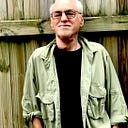America Exceptional? Not so much
By Alec Dubro
The US is “the greatest, most exceptional and most virtuous nation in the history of the world.” Or so Donald Trump proclaimed at Mt. Rushmore this past July fourth.
Apparently, it’s not sufficient for the US to be merely exceptional — which means there are no others like us — we must be the most exceptional, which is in the category of ‘most unique.’ It’s not just grammatical nonsense; it assumes an unassailable mantle that none can touch. And since we’re also the most virtuous, don’t bother to criticize us since we’re much better than you. As the general said in an old New Yorker cartoon, “It’s not enough to be a superpower, we must be a super-duper power.”
Interestingly, it was Joseph Stalin who first used the phrase American Exceptionalism — in a rebuke to breakaway American Communists who claimed that Marx’s theories didn’t quite apply to the US.
Naturally, Trump isn’t the only president to make extravagant and unprovable statements. Even Obama indulged in hyperbole at his inauguration: For instance, he claimed that in no other country in the world can people with limited means rise to affluence. That’s blather, of course: According to the World Economic Forum, the US isn’t even in the top 10 in terms of upward mobility.
But Obama didn’t restate this myth out of any motive beyond cheerleading. I mean, actual cheerleaders earn their due by telling the fans their team on the field is the greatest, even when the score and the team standings prove beyond doubt that the opposite is true.
Trump, on the other hand, didn’t say this to uplift the country, but rather to delegitimize the rising tide of protest. But it was also a warning to other nations not to challenge our preeminence in all things — even when the indication is, such preeminence in many areas is eroding with each passing year.
So, isn’t there any evidence of American exception — aside from our commanding lead in coronavirus infections? Well, sure: no other country uses yellow school buses; we have most of the world’s garbage disposals; you can get ice in everything; and no other country has college athletics. Or, more seriously, we don’t use the metric system and we have no universal healthcare.
Of course, it’s true that the US excels in a number of things. But while it’s true, for instance, that American culture has grown to flood the world, that’s hardly sufficient for the US to claim exemption from international norms or practices. And as for more virtuous, well, I wouldn’t want to be in charge of proving that.
The way for a country — a state, a city, an individual — to become exceptional is not by loudly proclaiming it, but by doing exceptional things. Unfortunately, Trump’s concept of exceptionalism seems to be: How many things that others can’t do can I get away with? Sooner or later, though, enough people will be judging him and this country by its performance. Right now, positive exceptional things are in perilously short supply. And people are noticing.
And what if we’re not the greatest, most exceptional and most virtuous nation in the history of the world? For one, it means accepting that we’re only one part of the world’s peoples — 4.25 percent of it, to be exact. And that we’re not entitled to a hugely disproportionate share of the world’s resources or benefits. By trying to acquire those, we’ve been forced to remain in a constant state of war abroad and an ever-tightening national security state at home. A peculiar strategy for the world’s most virtuous people.
But mostly, it relieves us of the burden of constantly trying to prove that we’re greater, more exceptional and more virtuous than anyone else, or lying about it. I suspect that after a period of ego deflation, Americans who’ve clung to the myth of exceptional will find it extremely liberating. We should try it sometime.
Alec Dubro is a veteran writer who began as a Sixties rock critic and became an investigative reporter and who’s now an opinion writer and graphic artist. He lives in Washington, DC.
